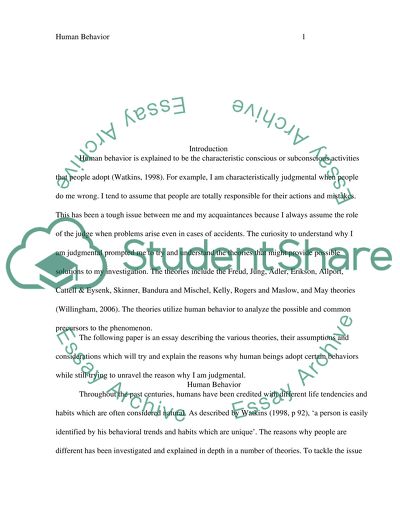Cite this document
(Theories of Human Behavior Essay Example | Topics and Well Written Essays - 2500 words, n.d.)
Theories of Human Behavior Essay Example | Topics and Well Written Essays - 2500 words. Retrieved from https://studentshare.org/psychology/1603630-psychology-theorist
Theories of Human Behavior Essay Example | Topics and Well Written Essays - 2500 words. Retrieved from https://studentshare.org/psychology/1603630-psychology-theorist
(Theories of Human Behavior Essay Example | Topics and Well Written Essays - 2500 Words)
Theories of Human Behavior Essay Example | Topics and Well Written Essays - 2500 Words. https://studentshare.org/psychology/1603630-psychology-theorist.
Theories of Human Behavior Essay Example | Topics and Well Written Essays - 2500 Words. https://studentshare.org/psychology/1603630-psychology-theorist.
“Theories of Human Behavior Essay Example | Topics and Well Written Essays - 2500 Words”, n.d. https://studentshare.org/psychology/1603630-psychology-theorist.


